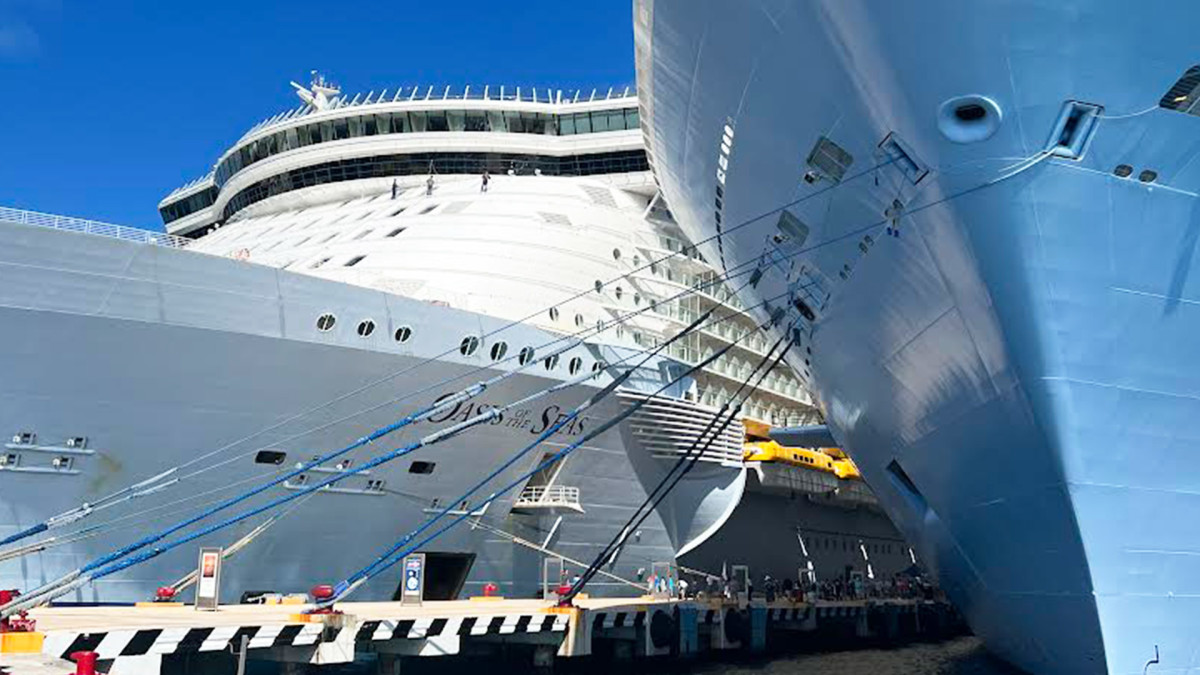
Cruise lines and the ports they visit are generally partners on a broad level,. Usually, the two entities work together to balance the impact of bringing thousands of people to a destination versus the economic benefit that creates.
When a cruise line docks in a port, there are multiple costs. First, the cruise line pays a docking fee that's usually hourly. Second, most ports charge a tax per passenger that is paid for every person on the ship, even if they don't get off.
Related: What the US government’s Bahamas travel warning means for cruises
In addition to paying a tax that usually goes toward developing and maintaining the port, cruise passengers spend money. That could mean buying local goods, eating in restaurants, and much more.
Most cruise ship destinations in the Caribbean need tourists to keep their economies afloat. The Covid pandemic was devastating to many of these destinations because tourism simply stopped.
The cruise industry, however, has fully recovered and is now bigger than it was in 2019. That has been great for the countries where ships call on adding tens or even hundreds of millions to their economies.
In most cases, the cruise lines and their destinations work together to decide what's fair when it comes to taxes and other port fees. Now, four major cruise lines have taken issue with a proposed tax that would make stopping in Meixcan ports much more expensive.

Image source: Dan Kline/Come Cruise With Me
Cruise lines push back on Mexico migration tax
"The Florida and Caribbean Cruise Association (FCCA), on behalf of Carnival, MSC, Royal Caribbean, and Norwegian Cruises, has sent a letter to the President of Mexico, Claudia Sheinbaum, requesting that she eliminate the new tax of USD 42 as a duty of migration to cruise passengers," Reportur.com reported.
(All comments from Reportur.com are translated from Spanish via Google translate.)
In the letter, the trade association warned that the new tax could impact cruise itineraries and may put millions of dollars in investments in Mexico at risk.
"This proposed tax could also jeopardize the cruise industry's investments in the country, including billions in planned developments and other projects intended to help rebuild Acapulco and cultivate new Mexican tourist destinations," the FCCA shared.
Sign up for the Come Cruise With Me newsletter to save money on your next (or your first) cruise.
The cruise industry expects to bring 10 million passengers across 3,300 cruise arrivals in 2025.
In the letter, the FCCA, a not-for-profit trade organization composed of 23 member cruise lines operating nearly 200 vessels in Floridian, Caribbean, and Latin American waters, shared that Mexico "would become the most expensive destination compared to other countries in the region."
It's expected that the new migration tax, should it be approved, will not be collected until 2026.
Related: Royal Caribbean shares a cruise ship secret
An earlier version of this story included a quote from a cruise line executive, which Reportur.com pulled from that person talking about a previous $5 tax.
The tax is expected to come up for a vote in Mexico's Congress on Dec. 2.
Are you taking a cruise or thinking about taking one? Visit our Come Cruise With Me website to have all your questions answered.







